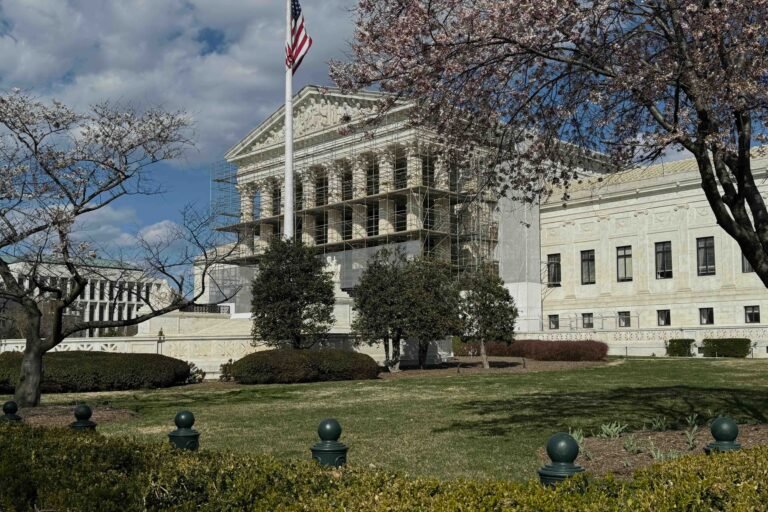Monday’s argument in A.J.T. v. Osseo Area Schools is the latest in a long series of Supreme Court cases involving the statutory rights Congress has granted to schoolchildren with disabilities. Two sets of statutes are important: the Individuals with Disabilities Education Act and a pair of overlapping anti-discrimination statutes, the Americans with Disability Act and the Rehabilitation Act. The IDEA obligates all school districts to provide a “free appropriate public education” to children with disabilities. Because Congress does not provide the funds for local schools to provide that education, there has been constant tension between parents – seeking a better outcome for their children – and school districts – trying to limit the expenditure of local tax dollars. The discrimination statutes bar any “discrimination” by a public entity (such as a school district) “by reason of [any] disability.”
In a case in which the school district fails to provide an appropriate education to a child with a disability, the question naturally arises whether the student can seek relief under both sets of statutes. It is clear the student can force the school district to provide that education under the IDEA. It is less clear, though, how the student can recover damages for the failure under the discrimination statutes, on the theory that the school district discriminates by providing appropriate education for children who are not disabled but failing to provide an appropriate education for those who are.
You might think that the IDEA is so specific that it provides the sole remedy for that failure. That would be wrong, though, because the Supreme Court originally took that view and Congress rejected it, adopting a statute, Section 1415(l), which states that nothing in the IDEA “shall be construed to restrict or limit the rights” available under the two discrimination statutes.
So what have the lower courts done? All agree that plaintiffs under the discrimination statutes can receive damages if they can show “intentional discrimination.” The question is what plaintiffs must prove to do so. Most lower courts hold that it is enough to show “deliberate indifference,” relying on the Supreme Court’s adoption of that standard for Title IX of the Civil Rights Act, which was modeled on the discrimination statutes at issue in this case.
The problem arises when a child seeks relief under the discrimination statutes. A few courts say that the normal rule applies – requiring only deliberate indifference. Most, though, have a special rule for schoolchildren, requiring them to show much more – “bad faith or gross misjudgment.”
To see the difference, the child in this case, known as A.J.T. in the filings, has severe epilepsy and for various reasons cannot function at school in the morning. For elementary school, when she lived in Kentucky, the schools accommodated her by providing instruction in the evening, so she received the same number of hours of schooling as her peers. When her family moved to Minnesota, however, the schools refused to accommodate her, offering her only three hours of schooling each day.
When A.J.T. brought suit, the courts easily held that the Minnesota schools violated the IDEA by failing to provide an “appropriate” education. Ultimately, though, they did not award damages, finding that the “deliberate indifference” of the school district to her education did not rise to the level of “bad faith” necessary for a student to receive damages under the discrimination statutes.
It seems fairly obvious that the dominant rule in the lower courts cannot be correct. With Section 1415(l) on the books, it can hardly be correct that schoolchildren have a higher burden of proof to obtain relief for discrimination than any other person facing discrimination because of a disability.
A.J.T.’s lawyers, not surprisingly, argue that the answer is that the justices require the same standard the lower courts apply to others who sue for discrimination based on a disability – requiring only proof of “deliberate indifference.” They point to the Supreme Court’s interpretation of Title IX and Congress’s clear intent that Title IX and these discrimination statutes should have the same analytical framework.
The school districts take the opposite tack. They agree that the standard should be the same for schoolchildren as for other plaintiffs under the discrimination statutes (satisfying Section 1415(l)). They argue, though, that the context of the disability discrimination statutes is so different from Title IX – which deals with workplace harassment by private entities – that it makes no sense to have the same standard. For them, federalism concerns call for a higher standard of proof before exposing local governments to liability for damages under a federal civil rights regime. They ask the court to reject the lower court decisions holding that “deliberate indifference” is adequate and require proof of bad faith across the board.
The arguments are clear cut and crisp. Some justices will be attracted to the idea that it should be harder to sue local governments under the discrimination statutes than it is to sue private parties under Title IX. Others, though, will find it hard to let that sentiment overcome the textual identity of the two sets of provisions. I expect the justices will be active in questioning.
Posted in Featured, Merits Cases
Cases: A.J.T. v. Osseo Area Schools, Independent School District No. 279
Recommended Citation:
Ronald Mann,
Justices to consider standards for special-education discrimination suits ,
SCOTUSblog (Apr. 27, 2025, 11:34 PM),
https://www.scotusblog.com/2025/04/justices-to-consider-standards-for-special-education-discrimination-suits/

